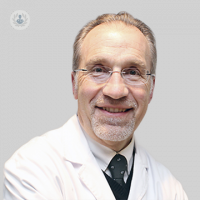Endoscopic nasal surgery, nose jobs without incisions
Written by:
What is endonasal endonasal surgery?
As its name suggests is the surgery we do inside the nose by using the endoscope, which is this instrument that carries a light and allows us to see and work inside these pits and also within the cavities that surround them, which are the so-called paranasal sinuses, but also allows us to work in the orbit, allows us to work in the lacrimal ways and allows us to work in collaboration with the neurosurgeon in the pituitary gland and in all the pathologies or tumors that are in contact with what we call the base of the skull, that is, near the nostrils. The advantages of nasal endoscopic surgery are that we work through a natural cavity, so we do not need to make any type of incision, as was the case when incisions were made next to the nose, incisions under the lip or even incisions above of the skull having to lift the entire cranial cavity to access this area, when the most logical is to access from the nostril itself to the pathology that appears in this area.
What pathologies can be treated with this type of surgery?
It can treat all types of pathologies, from small deviations from septum to sinusitis, polyposis, benign tumors, malignant tumors very limited, pathologies of the lacrimal pathologies, pathologies of the orbit as orbital decompressions or orbital tumors and with the help of the neurosurgeon can be operate tumors of the pituitary, tumors of the skull base from the brain such as meningiomas, meningoceles, cerebrospinal fluid fistulas, chordomas, etc.
What type of anesthesia will be used?
Normally general anesthesia is used, there are only some pathologies and surgeries in which local anesthesia is used, such as laser surgery of the lacrimal pathways and some very circumscribed pathology in the sinuses, but usually general anesthesia.
How is the postoperative of the patients?
It can be said that most patients are surprised at how little annoying the postoperative period is. From the start they are not more than one night and they can even leave the same day according to what type of surgery and in the cases of skull base tumors, which we do in collaboration with the neurosurgeon, we have reduced the stay from practically 10-15 days to 2, 3 or 4 days maximum in the clinic.



